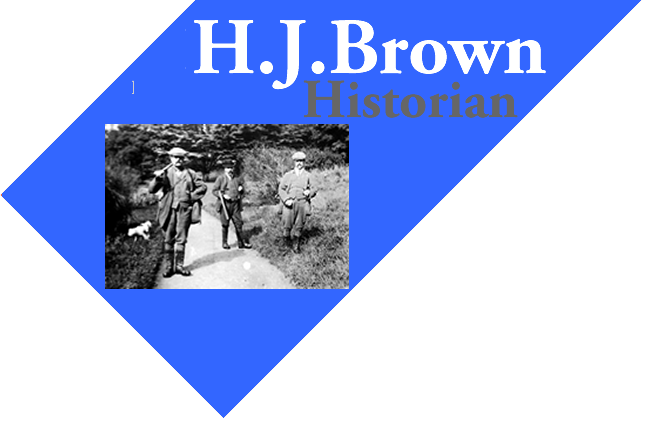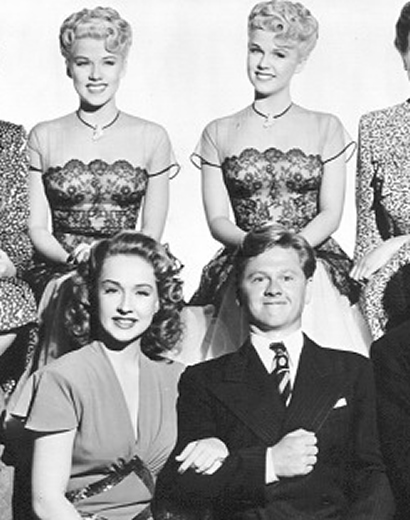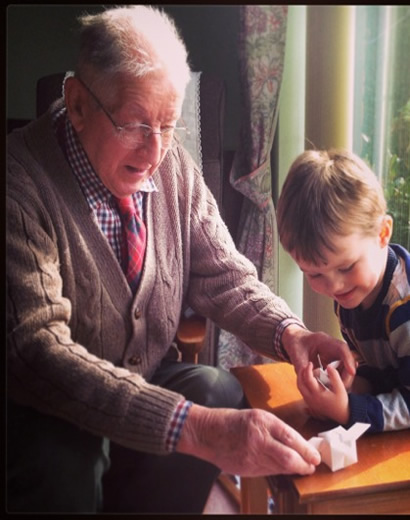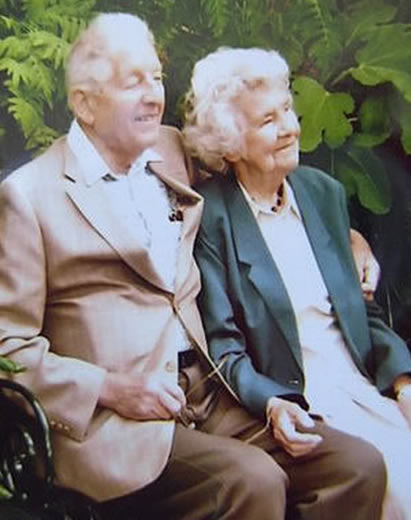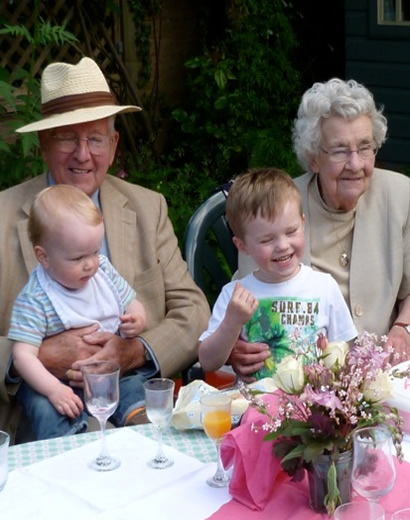The coming of the teenagers
As I write these notes in 2006, the news and television programmes are full of the problems of teenagers. They spend too much, smoke too much, behave badly, complain they are bored and have nothing to do, and, worst of all, they may have a drug problem or the making of one. People in my generation, who grew up before the War, are a bit bewildered by all this and look back at things when we were young and so different, and wonder how it all happened.
To enjoy all the Images Click on Large image and then the arrow for slide show
First of all in our time before the War, elementary schools, which were the lot of most children, finished at the age of 14 and you went to work. In London, where I lived, a few of the brighter ones went to central schools and these did not leave until you were 15. A very lucky few had parents who could pay to send them to grammar schools which also had a few scholarship entrants for bright children who could pass the entrants exam. Grammar school children could stay to 17 or 18 , and a very very lucky few went to university. I failed the grammar schools entrant exam ,but got to a central school, and I never heard of any of my friends going to university.
Eileen went to an elementary school and left when she was 14 to work as an office girl in Merry Miller Bakeries. Her wage was twelve shillings and sixpence a week (sixty two and a half pence in modern money) of which she gave ten shillings to her Mum for her keep.That left her with two shillings and sixpence (about twelve and a half pence modern )for her to spend on herself. She walked to work, had sandwiches for lunch, and her greatest pleasure was going to the cinema, which cost sixpence. She saved money for clothes and shoes and there was little left at the end of each week. Her experience was by no means uncommon and very few working people had a lot of money to spend.
At 14 young people started at the bottom of whatever work they went into and it was generally accepted that they were at the everybody’s beck and call. That would be your life until you started moving up, when you would get your turn to tell the newcomers what to do . By the late 1930s industry had achieved the 48 hour week, exclusive of meals, and this was considered a good advance in working practices. Nevertheless, to achieve this still meant working five weekdays and half day Saturday. Depending on what you did , you could be quite tired at the end of the working day, and generally speaking young people did not have as much time on their hands as today.
Opportunities to spend your money were more limited, even if you had spare cash, but the cinema was the greatest attraction. With their uniformed commissionaires and usherettes they really were picture palaces and behaviour in the auditorium was exemplary. Unlike today any noise or disturbance would not be tolerated by the other patrons, and you could be asked to leave. Dance halls were very popular and although most were licensed, drink was seldom a problem for this age group. Ballroom dancing was taken very seriously and, again, skylarking would not be tolerated by the other patrons. There were cafes, pie shops etc but restaurants were few and far between and there was no eating out culture like today. Pubs, of course, did a roaring trade, much frequented by older people , and yet again disturbance by young people was not tolerated although , by closing time at half past ten there was usually trouble from any customers who had imbibed too much. There were many clubs covering a wide variety of sports and pastimes provided you did not have to spend too much on equipment, and there were lots of youth organisations. Of course young people were not little angels but there was no general acceptance that young people meant trouble.
How then did teenagers come into existence and where did the name come from? To my knowledge the expression was never used and only came into the language with a very popular film series about a Dr. Hardy and his family, particularly his son, Andy, played by Mickey Rooney. He went to a High School, a thing we knew nothing about, drove his fathers car, and led a life completely different from ours but we lapped it up like we did all the Hollywood movies. He and his young friends were called teenagers and so in my opinion the expression came to be used. Then, after the War , as things got better so teenagers began to make their mark. Standards rose , money became more plentiful, families became smaller so children did not have to share so much, drink and drugs became commonplace and BINGO you have the teenage revolution!
To enjoy all the Images Click on Large image and then the arrow for slide show
First of all in our time before the War, elementary schools, which were the lot of most children, finished at the age of 14 and you went to work. In London, where I lived, a few of the brighter ones went to central schools and these did not leave until you were 15. A very lucky few had parents who could pay to send them to grammar schools which also had a few scholarship entrants for bright children who could pass the entrants exam. Grammar school children could stay to 17 or 18 , and a very very lucky few went to university. I failed the grammar schools entrant exam ,but got to a central school, and I never heard of any of my friends going to university.
Eileen went to an elementary school and left when she was 14 to work as an office girl in Merry Miller Bakeries. Her wage was twelve shillings and sixpence a week (sixty two and a half pence in modern money) of which she gave ten shillings to her Mum for her keep.That left her with two shillings and sixpence (about twelve and a half pence modern )for her to spend on herself. She walked to work, had sandwiches for lunch, and her greatest pleasure was going to the cinema, which cost sixpence. She saved money for clothes and shoes and there was little left at the end of each week. Her experience was by no means uncommon and very few working people had a lot of money to spend.
At 14 young people started at the bottom of whatever work they went into and it was generally accepted that they were at the everybody’s beck and call. That would be your life until you started moving up, when you would get your turn to tell the newcomers what to do . By the late 1930s industry had achieved the 48 hour week, exclusive of meals, and this was considered a good advance in working practices. Nevertheless, to achieve this still meant working five weekdays and half day Saturday. Depending on what you did , you could be quite tired at the end of the working day, and generally speaking young people did not have as much time on their hands as today.
Opportunities to spend your money were more limited, even if you had spare cash, but the cinema was the greatest attraction. With their uniformed commissionaires and usherettes they really were picture palaces and behaviour in the auditorium was exemplary. Unlike today any noise or disturbance would not be tolerated by the other patrons, and you could be asked to leave. Dance halls were very popular and although most were licensed, drink was seldom a problem for this age group. Ballroom dancing was taken very seriously and, again, skylarking would not be tolerated by the other patrons. There were cafes, pie shops etc but restaurants were few and far between and there was no eating out culture like today. Pubs, of course, did a roaring trade, much frequented by older people , and yet again disturbance by young people was not tolerated although , by closing time at half past ten there was usually trouble from any customers who had imbibed too much. There were many clubs covering a wide variety of sports and pastimes provided you did not have to spend too much on equipment, and there were lots of youth organisations. Of course young people were not little angels but there was no general acceptance that young people meant trouble.
How then did teenagers come into existence and where did the name come from? To my knowledge the expression was never used and only came into the language with a very popular film series about a Dr. Hardy and his family, particularly his son, Andy, played by Mickey Rooney. He went to a High School, a thing we knew nothing about, drove his fathers car, and led a life completely different from ours but we lapped it up like we did all the Hollywood movies. He and his young friends were called teenagers and so in my opinion the expression came to be used. Then, after the War , as things got better so teenagers began to make their mark. Standards rose , money became more plentiful, families became smaller so children did not have to share so much, drink and drugs became commonplace and BINGO you have the teenage revolution!
